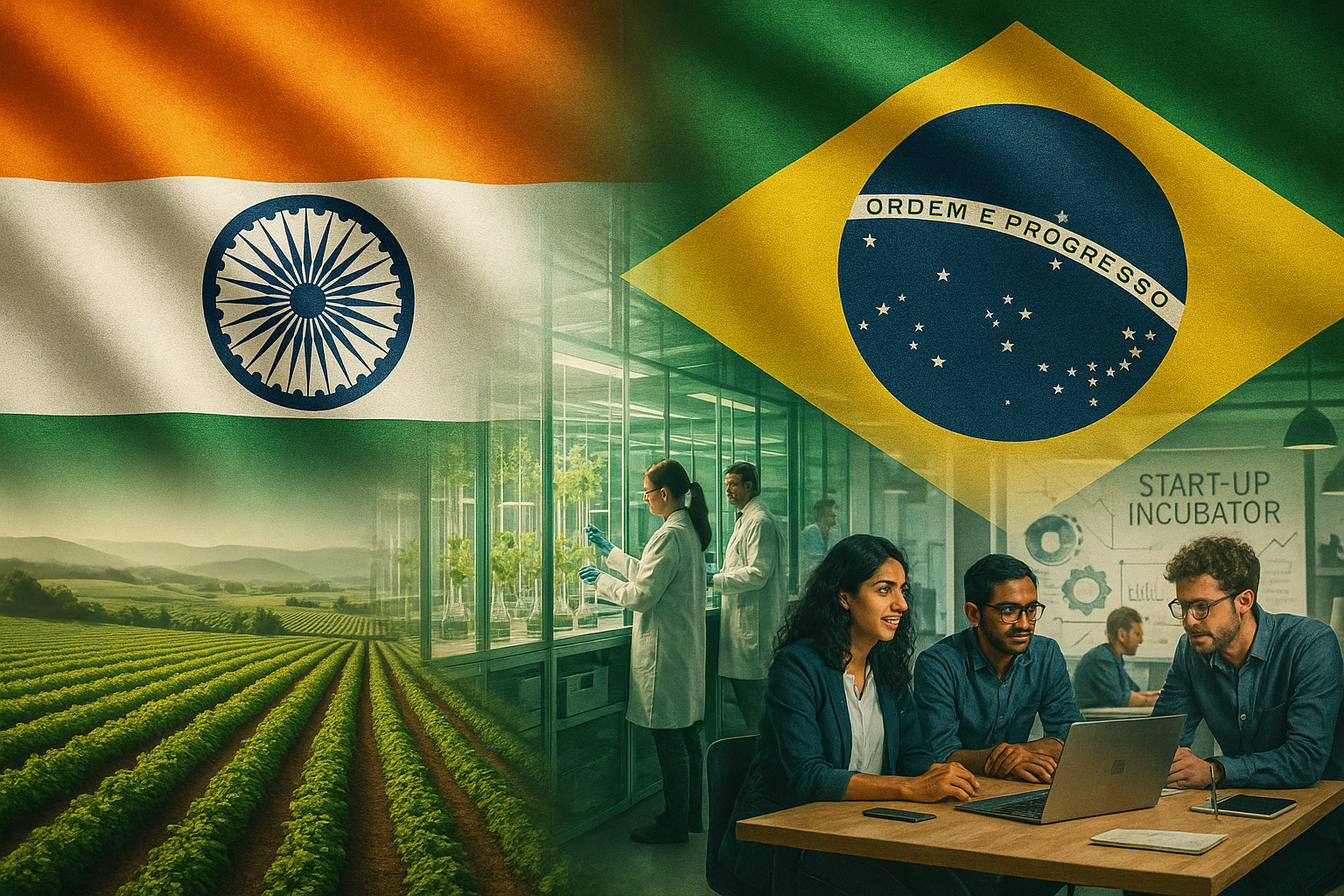With US tariffs reshaping global trade, Brazil is calling for deeper economic and agricultural cooperation with India. Ambassador Kenneth Felix Haczynski da Nobrega emphasized that the two countries must align their strengths in food security, science, and innovation. The remarks came during the launch of Maitri 2.0, a cross-border agri-tech program aimed at boosting resilience against climate change and enhancing agricultural productivity. The move highlights India and Brazil’s shared ambition to strengthen bilateral trade and position themselves as global leaders in sustainable agriculture.
Core Development
Speaking at the Maitri 2.0 Cross-Border Agri-Tech event, Nobrega stressed that Brazil and India are trusted partners with strong diplomatic ties. He said both countries should seize the current geopolitical context to build complementarities across their economies, particularly in agriculture.
The program will run from September 22 to 26, bringing together scientists, researchers, start-ups, and policymakers from both nations to foster innovation and collaboration in agri-tech.
Key Drivers / Issues
Several factors are driving this closer alignment:
US tariffs are disrupting traditional trade flows, making diversification critical.
Both India and Brazil rank among the top global agricultural producers, offering synergy in food security.
Climate change and extreme weather are pushing for joint research on agricultural resilience.
India’s success in nurturing agri-tech start-ups provides a model Brazil aims to replicate.
Stakeholder Impact
For farmers and agri-tech entrepreneurs, the collaboration opens opportunities for joint ventures and cross-border innovation. Investors may benefit from new ventures in food security and climate resilience. For the governments, the initiative strengthens geopolitical positioning and trade resilience. Consumers worldwide could see gains in sustainable food supply chains.
Industry & Policy Reactions
The initiative follows Prime Minister Narendra Modi’s state visit to Brazil in July, where a 10-year roadmap was set with five pillars of cooperation, two of which—food security and science & technology—are now being implemented.
Indian industry experts welcomed the Maitri 2.0 incubator focus, noting its potential to link Indian and Brazilian start-up ecosystems. Brazilian officials highlighted that incubation centers are key to creating a sustainable pipeline of innovation.
Challenges Ahead
Aligning policies and incubation frameworks across two diverse economies.
Overcoming logistical and regulatory barriers to joint ventures.
Ensuring that innovation reaches farmers at the grassroots level.
Strategic Outlook
If successful, Maitri 2.0 could set the stage for a broader India–Brazil trade partnership beyond agriculture, including renewable energy, digital technology, and climate resilience. Both countries are positioning themselves as emerging powers ready to collaborate in shaping sustainable global trade models.
Why This Matters
As global trade is reshaped by US tariffs and geopolitical uncertainty, India and Brazil’s partnership shows how emerging economies can collaborate to enhance resilience, boost food security, and create sustainable growth pathways.












